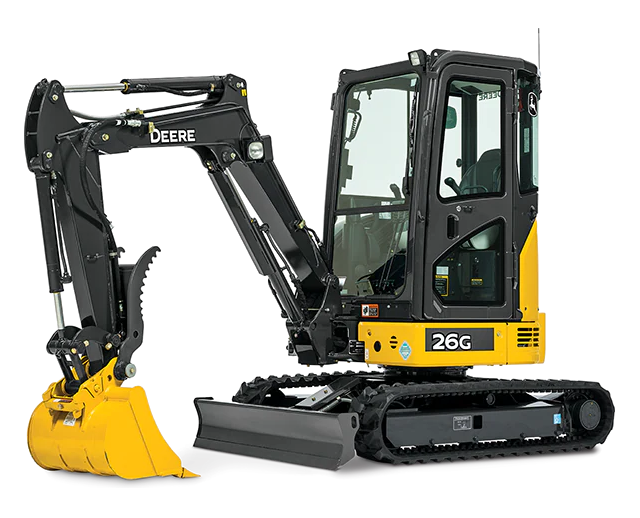Rental Company Near Me: Local Solutions for Equipment Rentals
Rental Company Near Me: Local Solutions for Equipment Rentals
Blog Article
Optimize Your Budget by Understanding the Prices Connected With Building Devices Services
Understanding the full range of costs linked with building and construction tools leasings is essential for optimizing your budget. What methods can be utilized to successfully manage these costs and guarantee a much more effective rental experience?
Review of Rental Expenses
When taking into consideration building and construction tools leasings, understanding the associated expenses is paramount for effective budgeting and job preparation. Rental costs can differ significantly based on several factors, including devices kind, period of service, and place. The preliminary rental fee commonly mirrors the tools's market need and its associated functional capabilities, affecting the total cost.
Along with the base rental price, secondary costs might occur, such as transport charges, fuel surcharges, and upkeep fees. It is important to make up these extra expenditures to properly evaluate the total expense of renting tools. Moreover, the rental duration can influence rates; longer leasings may get affordable rates, while temporary leasings might sustain higher daily fees.

Breakdown of Rental Prices
A detailed understanding of rental prices is important for specialists and task managers intending to optimize their spending plans. Rental prices for construction equipment commonly include a number of parts, consisting of base prices, time-based costs, and usage costs.
Base rates are the core costs connected with the rental of the tools, often identified by the type and dimension of the equipment. These prices can vary dramatically, influenced by variables such as devices demand, availability, and local market trends. Time-based fees, which may be daily, weekly, or monthly, serve to accommodate different task timelines and rental durations.
In addition, rental rates may include usage costs, which apply when equipment is used beyond a specified threshold, ensuring that the rental business can make up wear and tear. Seasonal demand changes can likewise impact rental prices, with peak building and construction periods typically commanding higher rates.
Furthermore, understanding the rental business's policies relating to upkeep and insurance can give further understanding right into the total expense framework. By evaluating these elements, contractors can make informed choices, ensuring the choice of rental tools straightens with both job requirements and spending plan restraints.
Additional Fees to Think About
Recognizing the details of extra charges is important for service providers to manage their general service costs efficiently. Past the basic rental rates, numerous extra fees can considerably affect the overall price of tools leasing. These costs commonly consist of distribution and pickup costs, which can vary based on range and logistics associated with delivering the tools to and from the job site.
Furthermore, some rental companies read this might enforce fuel additional charges if the devices is returned with less fuel than when rented. It is also necessary to recognize possible cleansing fees, particularly for specific equipment that requires comprehensive upkeep after use.

Extensively assessing the rental arrangement and making clear these extra costs ahead of time can help service providers ensure and prevent unanticipated expenses that budget plans stay undamaged throughout the task lifecycle.
Upkeep and Repair Service Expenses
Normal repair and maintenance costs are usually neglected variables that can dramatically influence the overall expense of construction equipment rentals. When leasing tools, it is vital to take into consideration not just the rental costs however also the potential costs connected with maintaining the machinery in optimal operating problem.
Several rental firms consist of fundamental upkeep as component of the rental arrangement; however, a lot more extensive fixings or unanticipated malfunctions can result in additional costs. It's vital to review the rental contract thoroughly to understand what maintenance solutions are covered and what obligations drop on the renter.
Additionally, tools that is not well-maintained can lead to inefficiencies at work website, potentially raising and triggering delays task costs. To minimize these dangers, it is advisable to carry out normal evaluations and preserve open interaction with go to my site the rental provider pertaining to any kind of problems that develop throughout use.
Insurance Policy and Obligation Prices
Insurance policy and liability expenses are crucial parts that can dramatically influence the overall cost of construction devices rentals (dozer rental). These expenses make certain that both the rental business and the client are safeguarded from possible economic losses developing from mishaps, damages, or theft throughout the rental duration

In addition, customers must be conscious of any kind of deductibles or exemptions in the insurance coverage, as these can influence prospective out-of-pocket expenditures. Recognizing the terms of any insurance protection is crucial to avoid unforeseen prices. Ultimately, budgeting for insurance and obligation expenditures can help make sure a smoother rental experience and safeguard against financial risks related to building and construction tasks.
Conclusion
In verdict, a detailed understanding of the expenses associated with building and construction devices leasings is crucial for efficient budget management. Eventually, informed decision-making relating to devices services contributes to the total success of building and construction endeavors.
Rental costs heavy duty skid steer forks can differ substantially based on a number of variables, including devices kind, duration of leasing, and place (scissor lift rental). The rental period can impact prices; longer rentals may certify for reduced rates, while temporary rentals may incur higher daily charges
By performing detailed research and engaging with credible rental companies, professionals can effectively browse the complexities of rental pricing, inevitably maximizing their monetary sources.
Past the basic rental prices, different supplemental costs can substantially influence the complete cost of equipment service. Rental companies often provide obligation insurance policy that covers injuries to third parties or damage to home, while devices damage insurance policy can cover the expense of fixings or substitute if the leased equipment is harmed.
Report this page